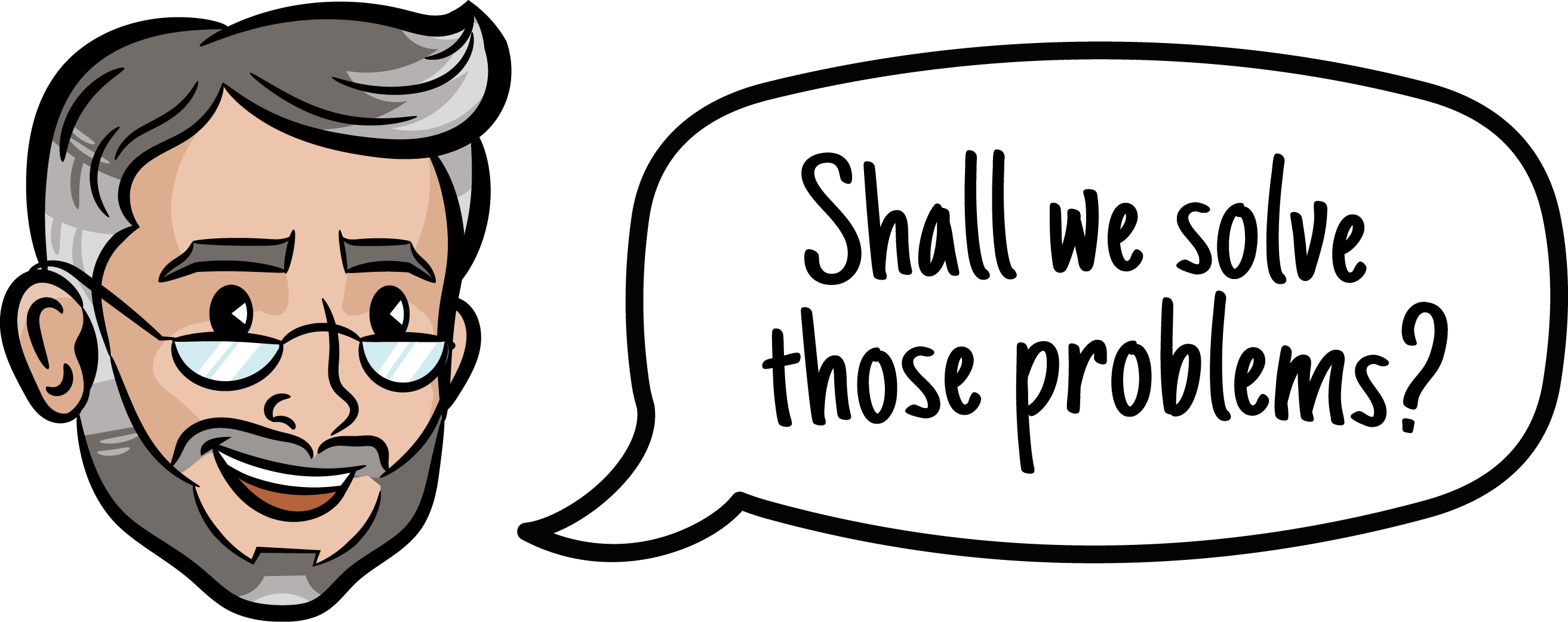In 2024, competition in the business world is fiercer than ever. Companies are constantly seeking innovative ways to capture leads, nurture prospects, and close deals. A well-defined sales funnel strategy is crucial for achieving success in this evolving landscape. Without one, businesses risk losing potential clients, mismanaging leads, and ultimately missing out on valuable revenue opportunities. Get your sales funnel bottlenecks defined and action items documented by the Sales Funnel Professor with your own sales funnel audit.
Why You Need a Sales Funnel Strategy in 2024
The digital landscape has changed drastically over the past few years, making a sales funnel strategy more important than ever. In 2024, buyers are more informed, with access to a vast amount of online information. This means that businesses must be proactive in engaging with potential customers at every stage of their journey. It’s important that you don’t try to boil the ocean and instead focus on understanding your ICP meaning when you’re getting started, as it helps you identify and target the right customers effectively.
A sales funnel strategy helps you manage leads effectively by breaking down the buyer’s journey into clear stages. It provides a structured approach to guiding prospects from initial awareness through to the final purchase. Without a defined strategy, leads can get lost in the process, resulting in missed sales opportunities and wasted marketing resources.
As consumers demand more personalized experiences, the need for a strategic, data-driven approach has only grown. A well-built funnel provides the structure needed to ensure that each lead is properly nurtured, helping businesses maximize conversions and revenue. Discover the BANT meaning to better assess how qualified your prospect is and identify the best opportunities for conversion.
Benefits of a Sales Funnel Strategy in 2024
The advantages of having a well-designed sales funnel strategy are vast. First and foremost, it allows businesses to optimize lead management by ensuring that every potential customer is guided through a tailored path. This helps increase the likelihood of conversion at every stage, (remember it is important to understand what’s unique about B2B Conversion Rate Optimization).

One key benefit of a sales funnel strategy is that it provides clarity. By defining the stages—awareness, interest, consideration, intent, evaluation, and decision—you can better allocate resources. This allows your marketing and sales teams to work in sync, targeting the right leads with the right content at the right time.
Another benefit is the ability to measure and track performance more effectively. A sales funnel provides clear metrics at every stage. For example, you can measure how many leads are moving from the awareness stage to the consideration stage, helping you pinpoint where prospects might be dropping off.
Automation is another benefit of a structured funnel. With the right CRM and marketing tools, you can automate email follow-ups, lead nurturing campaigns, and even personalize content for each prospect based on their position in the funnel. This level of personalization helps build trust, increasing the chances of conversion. Learn how the Sales Funnel Professor can help with your ABM sales funnel.
Strategic Advantages of Implementing Sales Funnels
Having a well-defined sales funnel strategy provides numerous strategic advantages. First, it offers a better understanding of your buyer’s journey. By mapping out each step from awareness to decision, businesses can identify pain points and opportunities to enhance the customer experience.
Another advantage is better lead qualification. Not every lead is ready to buy immediately, and a sales funnel strategy allows you to qualify leads more effectively. Leads at the top of the funnel are still in the awareness stage and may need more education, while those near the bottom are ready to make a decision. By nurturing leads according to their position in the funnel, businesses can move them more effectively toward a sale.
Sales funnels also help with alignment between marketing and sales teams. Marketing can focus on generating and nurturing leads, while sales can prioritize closing deals. A sales funnel strategy ensures that leads are consistently moved through the funnel, with each team contributing to the overall goal of driving conversions.
Additionally, having a funnel in place helps businesses avoid wasting resources. Without a strategy, teams might focus too much on top-of-funnel activities without nurturing leads through the middle and bottom stages. A funnel ensures that attention is spread across all stages, increasing overall efficiency. To gain deeper insights into user behavior at each stage of your sales funnel, consider using tools like Hotjar, which can help identify where prospects might be dropping off and provide data to refine the funnel for better conversion rates.
How a Funnel Strategy Drives Revenue Growth
A strong sales funnel strategy not only optimizes the lead conversion process but also directly impacts revenue growth. By understanding the needs and behavior of prospects at every stage, businesses can create more targeted marketing campaigns that resonate with their audience.
One of the primary ways a sales funnel strategy drives revenue is by improving the customer experience. When leads are nurtured with relevant, personalized content, they are more likely to trust your brand and move toward a purchase decision. This targeted approach reduces the sales cycle, allowing businesses to close deals more quickly.

Furthermore, a well-managed funnel increases the lifetime value (LTV) of a customer. By continuing to nurture leads even after the sale, businesses can turn one-time buyers into repeat customers. This is especially valuable in B2B industries, where customer relationships can lead to long-term partnerships.
A sales funnel strategy also helps identify high-value leads. By tracking how leads move through the funnel, businesses can identify which prospects are more likely to convert into paying customers. This allows sales teams to focus on the leads that are most likely to generate revenue, saving time and increasing efficiency.
Finally, a well-implemented funnel leads to better forecasting. By understanding how many leads are moving through each stage and the average conversion rates, businesses can predict future revenue more accurately. This allows for better financial planning and resource allocation.
Planning and Executing a Sales Funnel Strategy
Executing an effective sales funnel strategy begins with careful planning. The first step is to define your funnel stages. Typically, a B2B funnel includes stages like awareness, interest, consideration, intent, evaluation, and decision. Each stage requires different types of content and engagement tactics, so it’s important to tailor your messaging accordingly.
Once the funnel is defined, map out how prospects move from one stage to the next. For example, a lead in the awareness stage may first encounter your brand through a blog post or social media ad. From there, they might download an eBook or attend a webinar, which would move them into the interest stage.
Next, you’ll want to focus on content creation. The key to a successful sales funnel strategy is delivering the right content at the right time. Early-stage content should focus on education and brand awareness, while middle-stage content should demonstrate how your product or service solves specific problems. For the later stages, provide personalized offers, product demos, or case studies that help close the deal.
It’s also essential to invest in the right tools. Customer relationship management (CRM) systems, marketing automation platforms, and analytics tools help manage the entire funnel process. These tools allow you to automate repetitive tasks like follow-ups and lead scoring, ensuring no lead falls through the cracks.
Finally, continuously measure and refine your funnel. The success of your sales funnel strategy depends on tracking performance metrics and making adjustments based on the data. A/B testing landing pages, email sequences, and calls to action (CTAs) can help you identify what’s working and where improvements are needed. A CRO expert company can provide valuable insights and strategies to optimize your funnel, ensuring it performs at its best. Find out if a CRO Expert is exactly what you need to unlock your funnel’s full potential.
Conclusion
In 2024, a well-defined sales funnel strategy is critical for achieving business success. By implementing a structured funnel, businesses can guide prospects through the buyer’s journey, optimize lead management, and drive revenue growth.
A strong funnel not only improves the customer experience but also helps businesses identify high-value leads and close deals faster. For companies looking to optimize their funnel-building skills, the Sales Funnel Professor offers an in-depth Sales Funnel Course. This course provides expert training on how each B2B funnel stage works and how to optimize it for maximum returns.
By focusing on each stage and continuously refining your approach, you’ll ensure a more effective funnel that drives long-term success.


